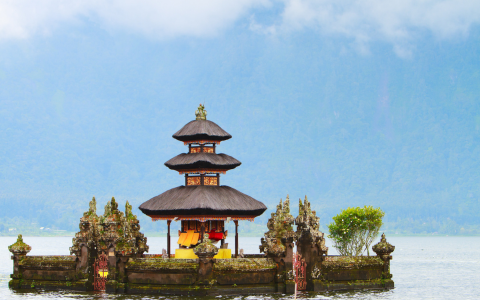Step-by-Step Guide to Setting Up a PMA Company in Indonesia
Establishing a PMA (Penanaman Modal Asing) company, or Foreign Direct Investment (FDI) company, in Indonesia is an essential step for foreign investors looking to enter the Indonesian market. A PMA allows foreign nationals and companies to have legal ownership and control over their businesses in Indonesia, enabling them to operate across various sectors.
This detailed guide will walk you through the legal process, requirements, and timeline for setting up a PMA company in Indonesia.
What is a PMA Company?
A PMA (Penanaman Modal Asing) company is a legal business entity in Indonesia that allows foreign investors to directly invest and own shares. Under Indonesian law, a PMA company is required for foreign investors to establish their business and engage in activities such as manufacturing, services, and trade. This structure ensures compliance with the country’s legal and regulatory framework while granting rights to foreign ownership.
Step-by-Step Guide to Setting Up a PMA
1. Understanding Investment Regulations
Before diving into the process, foreign investors must understand the regulatory landscape in Indonesia. The Negative Investment List (DNI) outlines which sectors are open or restricted to foreign investment and the maximum ownership percentage foreigners can hold in certain industries.
Consult the latest list or seek expert legal advice to ensure your intended business activities are allowed.
2. Reserve a Company Name
Your company name must comply with Indonesia’s company naming regulations. The name should consist of at least three words, be unique, and must not resemble any existing business names. This process is handled through the Ministry of Law and Human Rights.
3. Establish a Local Domicile Address
A key requirement for setting up a PMA is having a local business address in Indonesia. The location must be zoned for commercial activities and be registered in the same jurisdiction where your business will operate.
4. Prepare the Required Documents
To register a PMA, several documents are required, including:
- Personal Identification: Passport copies of all foreign shareholders and directors
- Business Entity Documents: Articles of Association for shareholders
- Investment Plan: A clear outline of the business activities, estimated investment amount, and operational timeline
- Local Address Proof: Lease agreement or ownership document of the business location
- Capital Structure: Minimum paid-up capital, which must be IDR 10 billion (approximately USD 700,000), with at least 25% of the total capital deposited at the time of establishment.
5. Incorporation and Notary Process
Once you have your documents in order, a local notary will assist in drafting and notarizing your company’s Articles of Association. This step is crucial as it formalizes the legal structure of the business. The Articles of Association will define the business’s operations, including shareholder structure, capital, and board of directors.
6. Obtain Investment Approval from BKPM
After notarizing your company’s documents, you need to register your PMA with BKPM (Indonesia Investment Coordinating Board). BKPM will assess your business plan, sector, and compliance with the Negative Investment List. If all requirements are met, they will issue an approval.
Required Documents for BKPM Registration:
- Investment Application Form
- Articles of Association
- Proof of local address
- Shareholder and director identification documents
7. Legalization from the Ministry of Law and Human Rights
Once BKPM has approved your PMA application, you must legalize the company with the Ministry of Law and Human Rights. This step involves submitting the approved Articles of Association and other legal documents. The ministry will issue a decree confirming your company’s establishment.
8. Obtain Tax Identification (NPWP)
Every PMA company must register for a Tax Identification Number (NPWP) with the local tax office. This registration ensures that your company complies with Indonesia’s tax laws and is eligible to conduct business.
9. Register for OSS License
Indonesia’s Online Single Submission (OSS) system streamlines business licensing. To operate legally, your PMA company must be registered with OSS to obtain various licenses, including the Business Identification Number (NIB) and the required sector-specific licenses.
These licenses confirm your business complies with local regulations and is authorized to operate in Indonesia.
10. Open a Local Bank Account and Deposit Capital
To finalize the incorporation process, the next step is to open a local corporate bank account. You are required to deposit at least 25% of your total investment capital, which must be a minimum of IDR 2.5 billion (approximately USD 175,000). This deposit must be verified and documented as part of the company’s setup.
11. Hiring Employees and Work Permits
If you plan to employ foreign staff, you must apply for a RPTKA (Expatriate Placement Plan) from the Ministry of Manpower. Once approved, the company can apply for a Work Permit (IMTA) and a Limited Stay Permit (ITAS) for foreign employees.
Hiring local employees is generally encouraged, and Indonesia has various regulations supporting the employment of local talent, particularly for certain management roles.
Timeline for Setting Up a PMA
The process of establishing a PMA company can take anywhere from 6 to 12 weeks, depending on the complexity of the business structure and the accuracy of document submission. Each step, from name reservation to obtaining the necessary licenses, has specific timelines, but the general breakdown is:
- Company name reservation: 1 week
- Document preparation and notarization: 1-2 weeks
- BKPM approval and investment license: 3-4 weeks
- Ministry of Law legalization: 2 weeks
- Tax registration and bank account setup: 1-2 weeks
Key Benefits of Setting Up a PMA Company
- Full Foreign Ownership in Open Sectors
A PMA allows foreign investors to hold majority or full ownership in sectors that are open to foreign participation, ensuring full control over their business operations. - Legal Work and Stay Permit
Foreign investors and key personnel can easily obtain work permits (IMTA) and residence permits (ITAS), providing legal status to live and work in Indonesia. - Local and International Business Opportunities
Operating as a PMA enables your business to engage in both domestic and international trade while benefiting from Indonesia’s free trade agreements. - Legal Protection and Transparency
Establishing a PMA ensures compliance with Indonesian laws and offers protection under international investment agreements, enhancing transparency and reducing risks.
Setting up a PMA company in Indonesia is a crucial step for foreign investors looking to expand their business in Southeast Asia. With the right guidance, the process can be straightforward, granting you access to one of the fastest-growing markets in the world. By understanding the legal requirements and following the proper steps, foreign investors can ensure a smooth transition into the Indonesian market and maximize their business opportunities.
If you’re ready to establish your PMA company in Indonesia, Azra Solutions can assist you every step of the way, ensuring a hassle-free and efficient process. Contact us today to get started!
- WhatsApp: +6281289462599, +6281272222729
- Telegram: azrapradipasolusi, azra_togi
















